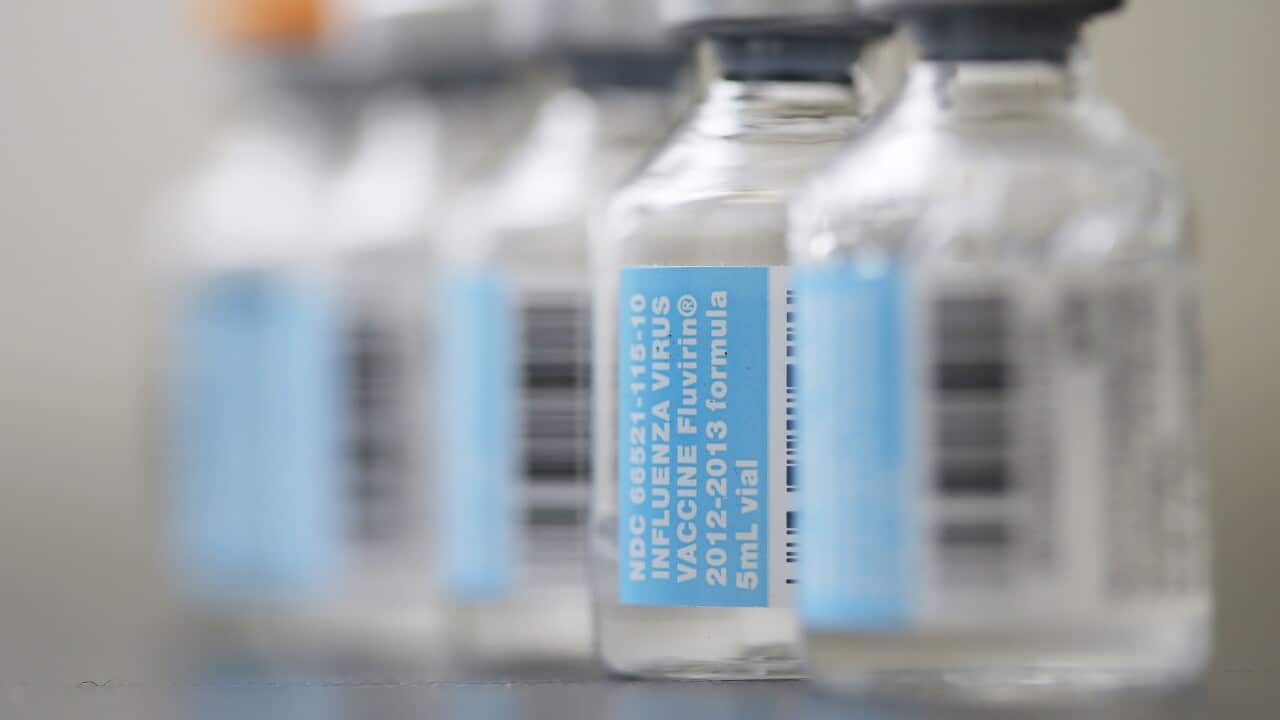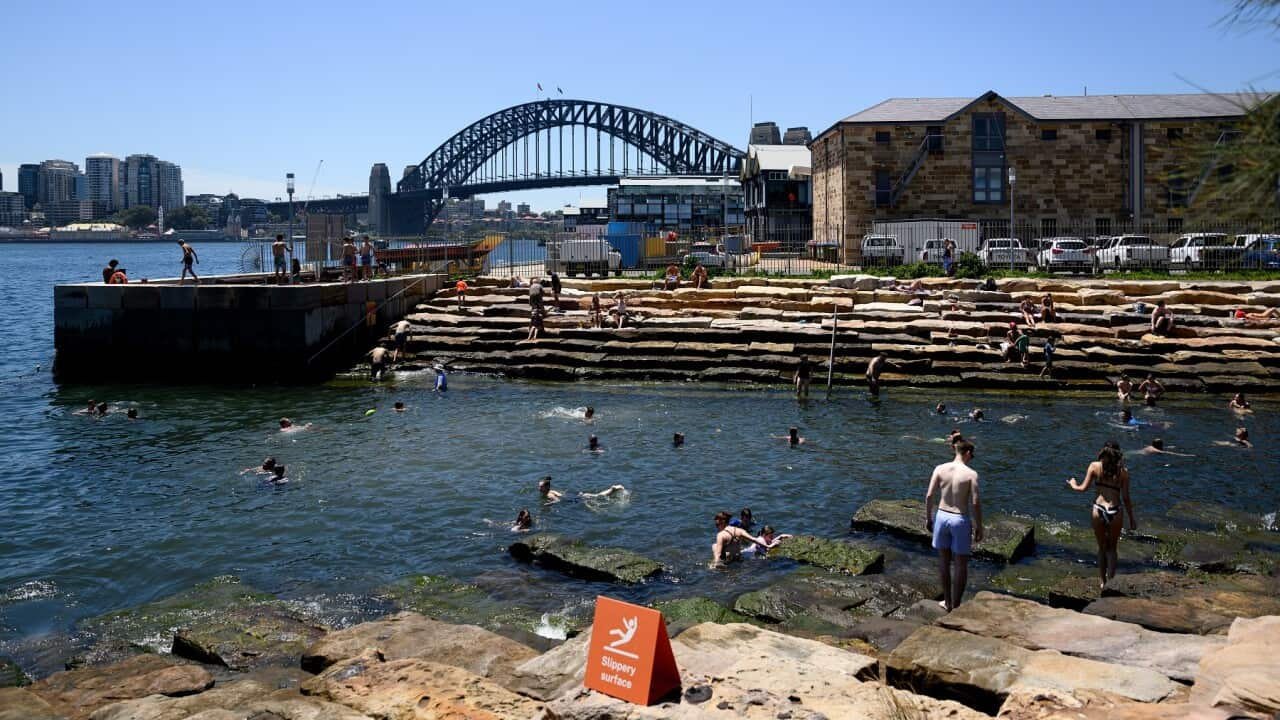TRANSCRIPT
Queenslanders are being encouraged to go out and get vaccinated against the flu.
The state government says it will continue to offer free vaccines amid predictions of a dangerous flu season.
Paul Van Buynder, professor of medicine at Griffith University, says the concerns are based on the way the flu virus has been behaving across the globe.
"What we do know is at the moment in the United States and some parts of the Northern Hemisphere influenza rates are starting to dramatically increase and we're expecting that they'll see a fairly severe season in the northern hemisphere and that usually portends to us getting a fair amount of flu in the next year as well."
Health Minister Tim Nicholls initially refused to commit to continuing the free scheme introduced by former Premier Annastacia Palaszczuk in 2022, saying he wanted time to consider its effectiveness.
But it seems he's changed his mind.
Queensland's chief health officer, Dr Heidi Carroll, explains.
"Influenza is the most common vaccine preventable disease we have. And while it can present sometimes as a mild illness for many people, it can make you feel really, really sick. We've seen an increase in numbers of influenza hospitalisations and notifications last year, and we're also aware of the cost of living crisis for people as well. So we're very keen to keep influenza vaccination free and available for everyone."
Data shows there was a significant drop in the number of people taking advantage of the free flu vaccination over the past three seasons.
Last year, around 32 per cent of the Queensland population received the shot.
The year before, this figure was 36 per cent - these figures are well below the ideal number, close to 85 per cent.
But that's not the only reason for the continuation of the campaign.
Chris Owen, president of the Queensland's branch of Pharmacy Guild of Australia, explains the impact that this decision has on the health system.
"It is unbelievably cost effective to reducing those costs in hospitals. And without going too deep into how the hospital system is funded, it's the state governments at this stage that are picking up the costs because at the state hospitals, they're picking up the majority of the cost. So they see it as an economic equation to say that if they invest in primary healthcare and preventative health, then they won't have to spend as much in treating the disease at the other end."
Last year, more than 80,000 cases of flu were recorded in Queensland, worrying the government about pressure on the state's health system.
Even so, Professor Van Buynder says people are still unaware of how dangerous flu can be.
"People think that every winter virus they get is the flu. They say they've had 20 doses of flu and it didn't bother them. Whereas in fact, if you get real influenza, you are really sick, you're laid up in bed, you get body aches and pains. Somebody once said to me for two days when I had the flu, I thought I was going to die and for the next two days I was worried I wasn't going to die and I was going to have to keep putting up with it. So we know that around about 3,000 people and about 30 children die of influenza every year in Australia."
Dr Matthew Mason, from the University of the Sunshine Coast, says there is also concern about misinformation.
"We also have a growing distrust of vaccinations in general. We're seeing lowering of vaccination rates across a whole range of vaccines in Australia, following on from the misinformation and the campaigns around the covid vaccination. So I think there are multiple things going on here leading to that lowering of the vaccination rate."
Dr Carroll says it is a combination of factors.
"Part of it might be due to people are fatigued or after covid probably want to have more choice over what they want to do with their bodies. Part of it's because of cost of living pressures, part of it's because people don't probably have as easy access to vaccination as they may have in the past. So it's a combination of factors that's going on and that's why it's very important for us to make it easily and readily available for people."
But how do vaccines actually work in our bodies?
The Pharmacy Guild's Chris Owen explains.
"So what happens without a vaccination is you'll get a viral pathogen or a viral infection and (the) body will have to figure out what it looks like and identify it and then produce the cells. And that can take a couple of days up to a week. Whereas if we've had that immunisation, it takes a matter of hours for (the) body to react to go, 'Hey, I've seen this before. I can put out some fighter cells immediately' and they can attack that virus from the very start."
Reducing the exposure time of the virus is fundamental to reducing its spread.
According to Dr Manson, that's why offering free vaccination to people outside the at-risk ages - people over 65 and children under 5 - is so crucial.
"The people who are heading out to work, the kids who are going out to school and going into shopping centres and those sort of things, they're the ones that will help spread any illness. If we can vaccinate those, we reduce the risk of other people getting unwell in the community."
Flu vaccines are offered free of charge nationwide, but only to at-risk groups.
Professor Van Buynder again.
"I think it's disappointing that the federal government has not stepped up to their role. But I think it's really great news for Queenslanders that for things like meningococcal B vaccine, for things like nirsevimab, and for things like flu vaccine, we're seeing the Queensland government step up when the federal government isn't taking on what we expect would be their responsibility."
Vaccination campaigns in some other states are yet to be announced, but in the meantime, Mr Owen urges people to forget about "Vaccine fatigue" and get their shot as soon as it's available in March.
"The particularly bad time is between April and late August. So that's the flu season. And generally you like to allow 10 to 14 days prior to that flu season, so your immunity has time to catch up. So if you vaccinate any time between when stocks arrive some time in March until probably mid-May, that's the best time. But as I always say, there is no bad time to have a vaccination - any vaccination is better than none at all."













